Lea Michele, Fanny Brice, and the Art of Trying Too Hard
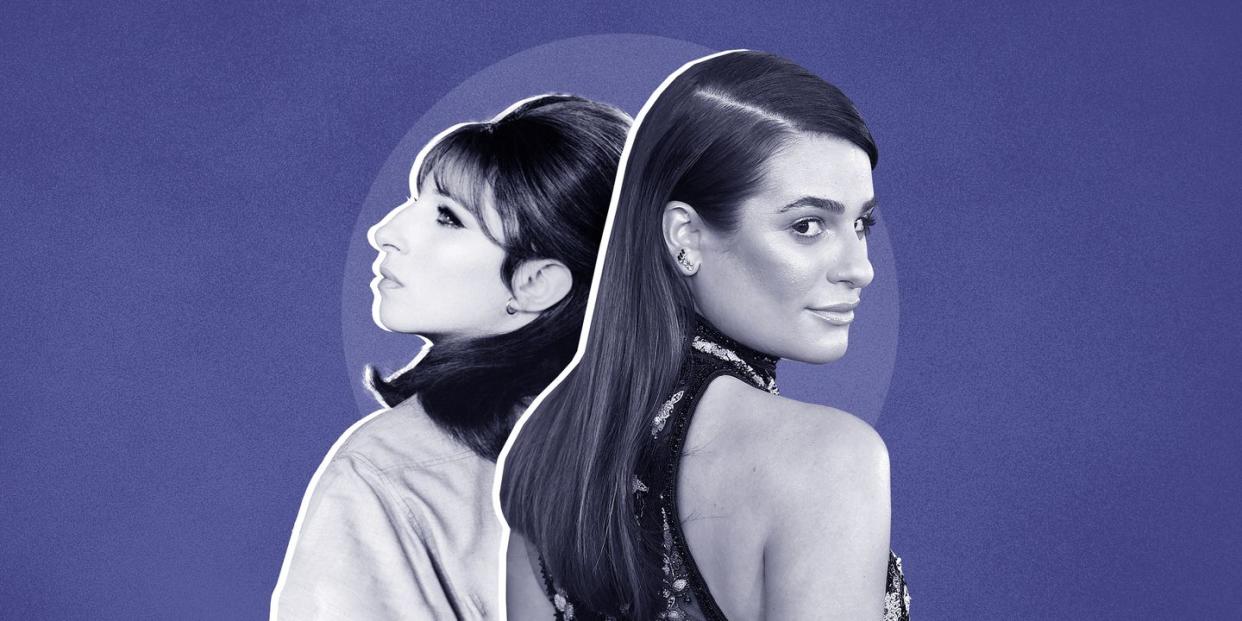
- Oops!Something went wrong.Please try again later.
- Oops!Something went wrong.Please try again later.
The court of public opinion is a ruthless and volatile beast. One minute you’re primetime royalty, belting a capella mashups in some kind of theater kid fever dream. The next, you’re subject to an elaborate conspiracy theory that you can’t read, and loathed for the earnestness that’s landed you in Broadway roles since age 8.
Lea Michele has arguably inspired more cheerful scorn than adoration in the dozen years since she rose to fame in Ryan Murphy’s musical series, when her public persona instantly became inseparable from her Glee character Rachel Berry. In 2020, Samantha Ware and others who’ve worked with Michele accused her of on-set behavior ranging from disrespectful to vicious, for which she issued an apology on Instagram.
Even aside from her alleged attitude and diva’s tongue, the Bronx-born child actor turned aughts cause célèbre has long been perceived as cloying and less than humble, a try-hard with an unsettling zeal behind the eyes that says she’ll do whatever it takes to get what she wants.
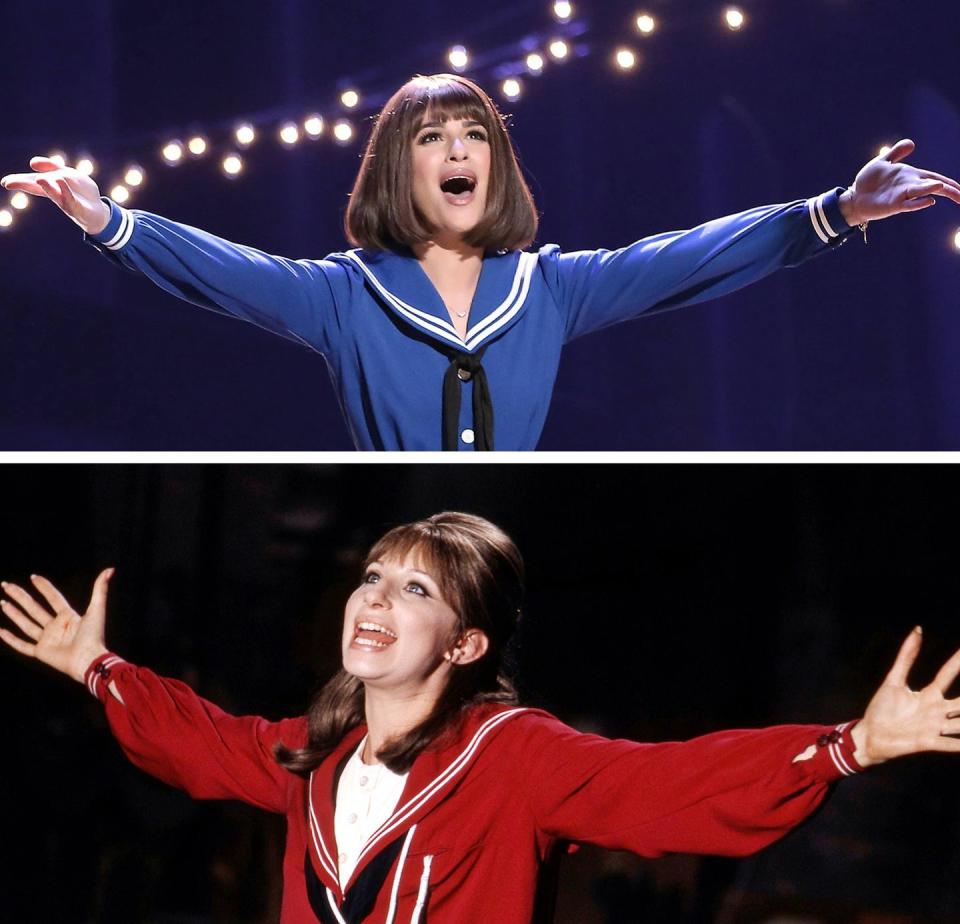
In other words, the character of Lea Michele in the public imagination is not unlike Fanny Brice, the aspiring comedienne and vocal powerhouse whose ascent to stardom is the subject of Funny Girl, the musical that catapulted Barbra Streisand into her own stratosphere. Fanny is pushy and bold and unapologetic about wanting to be a star. And now that Michele is taking over the role from Beanie Feldstein in the first Broadway revival, an air of triumph seems to be turning the tides on perceptions of the Spring Awakening ingenue.
It would be tough to begrudge anyone the wish fulfillment of this casting coup d'état, especially since Michele has made no secret of her burning desire to play Fanny Brice.
For little reason other than she was at the height of her TV fame, Michele performed “Don’t Rain on My Parade” at the Tony Awards in 2010. Gleeks who held on until the bitter end will remember that in season 5, Rachel starred in a fictional Broadway revival of the 1964 musical (and even received a rave from The New York Times). Off screen, Murphy acquired the stage rights to the show, presumably for a Michele-led production that never came together. Even after Murphy moved on from the idea, Michele later told dreamcatcher Andy Cohen on Watch What Happens Live, “I feel really ready to do it now, so maybe we can do it soon.”
As it does for Fanny, all that stubborn effort is finally paying off.
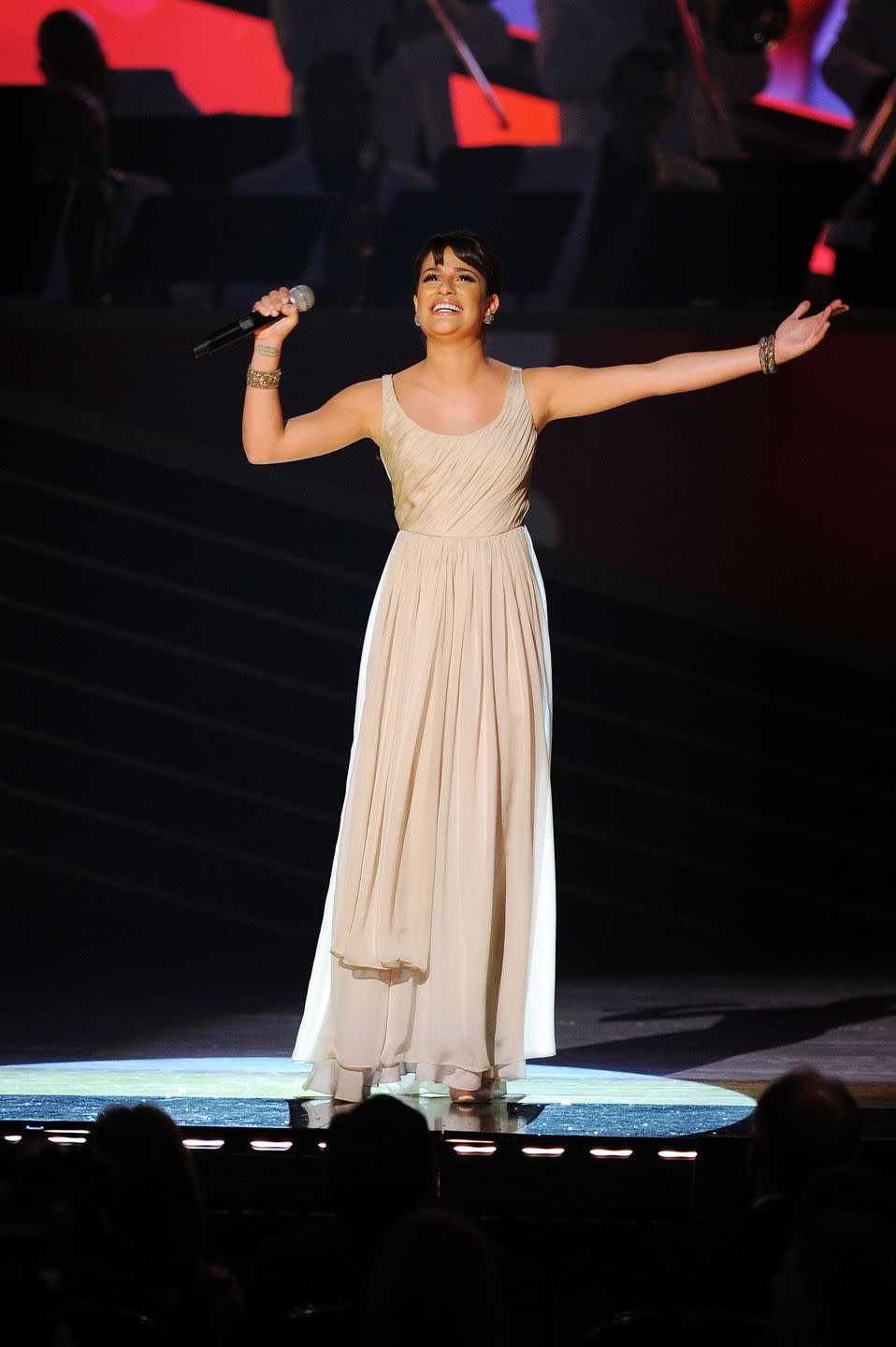
And because the pop culture peanut gallery loves to frame one celebrity’s win as another’s loss, Feldstein and Michele have been pitted against each other since the Booksmart star was first announced in the role. Also speaking to Andy Cohen, Feldstein recalled, “I didn’t know that any of this was happening,” referring to her confusion when Michele started trending on Twitter after the original casting announcement. “I don’t know the woman whatsoever,” Feldstein said in the spirit of Mariah Carey, adding that Michele had written her a nice note of congratulations.
Then came the reviews, many decidedly not raving about Feldstein’s performance, leading Michele to trend yet again.
In a curious bit of timing, Michele was soon in the culture news cycle for another reason that actually pertained to her skills on stage. The HBO documentary Spring Awakening: Those You’ve Known, a love letter to the smash 2006 musical and reunion concert last fall commemorating its 15th anniversary, premiered in May, reminding many fans of what endeared them to Michele in those early days. The doc pays especially sweet homage to Michele’s deep and enduring bond with Jonathan Groff, whose puppy dog face is often smeared with tears as he sings her praises.
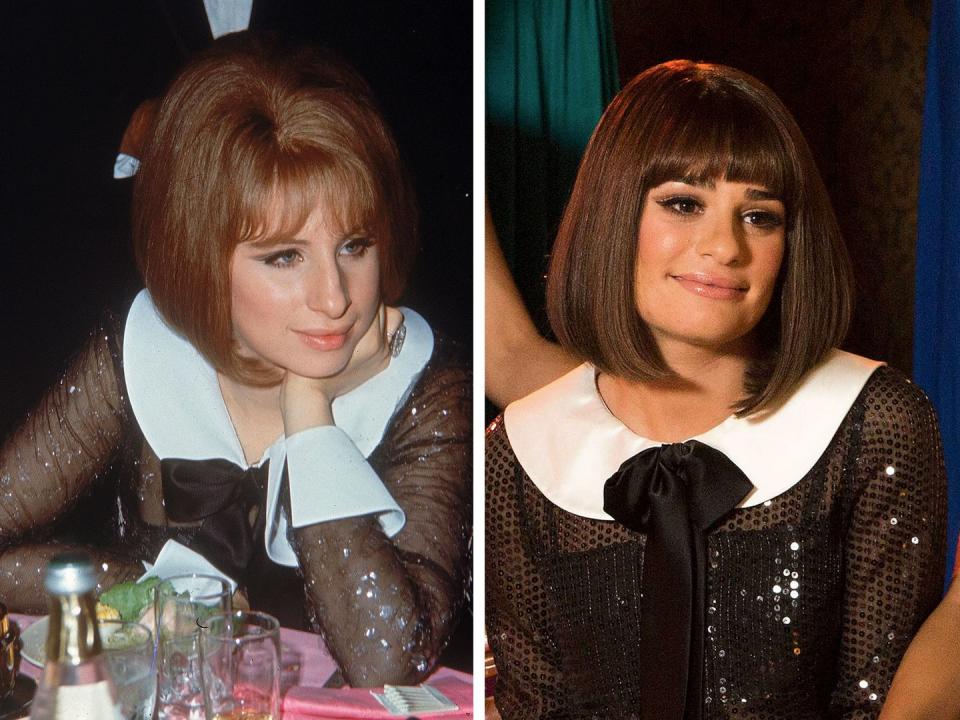
Those You’ve Known is essentially a love story between co-stars, and Michele benefits from being shown through Groff’s perspective. He came out to her before anyone else. She gave him a female anatomy lesson with a desk lamp. They simulated erotic flagulation and sex on a giant swing and in front of hundreds of people, and it meant something to them. It also helped a lot of young people feel seen and understood.
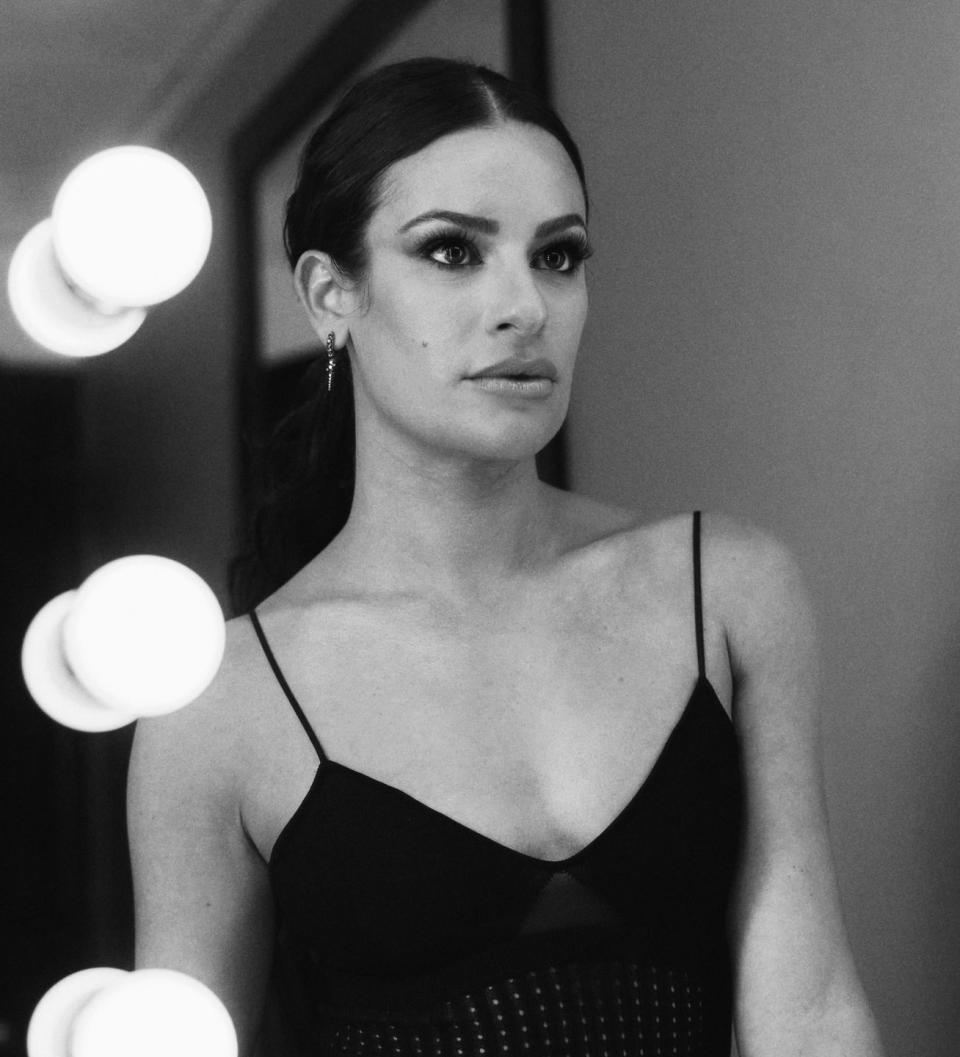
Along with that jolt of nostalgia, Michele seems to be benefiting from her unlikely position as the underdog Fanny Brice. After she lost out on the role of a lifetime, lackluster notices for her presumed revival have found her back on the upswing. And, it seems, enough time has passed since the allegations of racism and nastiness on set—and her subsequent Instagram apology, in which she wrote, “I have never judged others by their background or color of their skin, that's not really the point, what matters is that I clearly acted in ways which hurt other people ... I apologize for my behavior and for any pain which I have caused” before promising to learn and do better in the future.
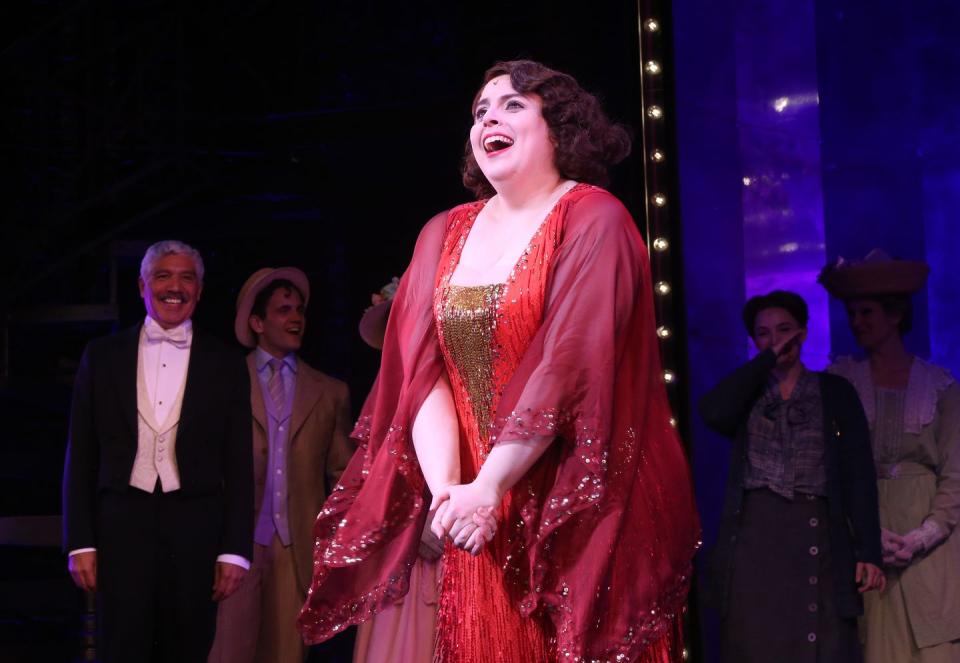
It’s like a plotline out of Valley of the Dolls, wherein showbiz is rife with ego, bitter feuds, and crossovers between Broadway and Hollywood depending on the value of one’s star currency.
But neither Fanny nor the women of Jacqueline Susann's iconic novel had to deal with the thorniest impasse of modern celebrity, which is being seen to want it too much. When it comes to fame, and especially to famous young women, having no chill can be the kiss of death for one’s so-called likeability.
The start of Michele’s career predates the rise of platforms like YouTube and Instagram, where apparent effort and hunger for recognition is rewarded. Still, the rules for women who act—and especially for those who also sing—remain to cultivate a certain nonchalance toward the inevitable applause. At the same time that Michele was playing a girl with no chill who could sing on TV, Anne Hathaway won an Oscar for Les Misérables—and was unfavorably compared, in her forthright earnestness, to the nonplussed Jennifer Lawrence, whose whatever attitude toward fame was endlessly fawned over and deemed quintessentially cool.
Could it be that enthusiasm and determination are finally in fashion? The everyday quest for virality and acclaim has only accelerated, with amateur performance crews halting pedestrian traffic to capture the perfect TikTok. Everyone wants a taste of adoration. Irony may finally be dead. And Lea Michele is at last getting her shot as Mr. Ziegfeld’s comic relief. Will she make us laugh? We’re about to find out.
You Might Also Like

